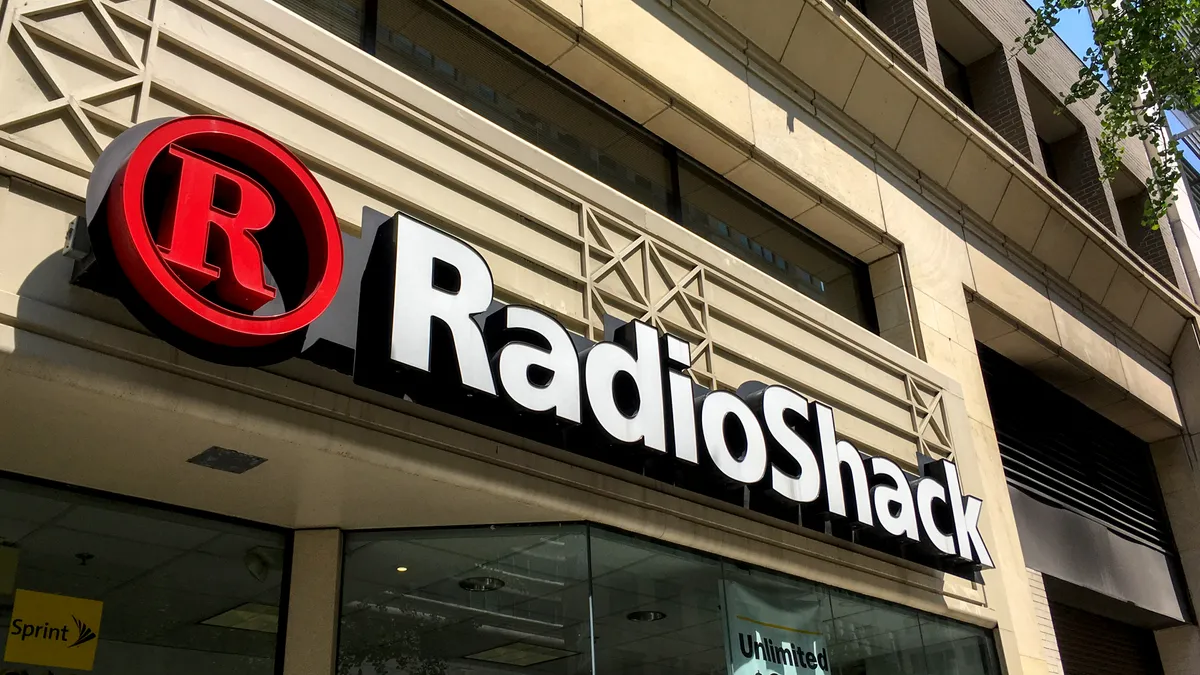Dive Brief:
- In a bombshell complaint, the U.S. Securities and Exchange Commission alleges that members of Retail Ecommerce Ventures ran a Ponzi scheme-like business wherein they raised about $112 million over the course of two years via fraudulent means. Named in the lawsuit are REV co-founders Taino Lopez and Alexander Mehr, as well as REV Chief Operating Officer Maya Burkenroad, who is Lopez's cousin.
- The company — which had bought the brand names of various retailers such as RadioShack, Pier 1 Imports, Dress Barn and Stein Mart — allegedly misrepresented the profitability of its portfolio, fraudulently offered the sale of securities issued by eight of its brands and misappropriated investor money. Additionally, the complaint alleges that Burkenroad had “no identifiable experience managing any company,” despite claims of such experience on REV’s website.
- The government is requesting a jury trial and relief including civil monetary penalties, per the complaint filed in the Southern District of Florida Tuesday. Lopez and Mehr could not be immediately reached for comment.
Dive Insight:
Before its retail IP portfolio changed hands and REV ceased operations in 2024, Retail Ecommerce Ventures had set out to revamp industry names as purely online sellers. The SEC claims the endeavor was done fraudulently.
“In order to maintain the appearance of a successful business, Defendants started operating a Ponzi scheme by making payments of promised returns to existing investors using either new investors’ funds or investor funds from other REV Retailer Brands,” the filing states.
Lopez and Mehr, on multiple occasions through investor calls and in YouTube videos, touted the strong financials of its brands. In one email cited by the SEC, Lopez allegedly “claimed that Dress Barn and Stein Mart were ‘on fire’ and ‘cash flow is strong,’ that ‘there are plenty of public companies operating at heavy losses’ but that’s ‘not us,’ and that REV had ‘brands with a positive EBITDA.’”
In one example related to Dress Barn, internal financial statements had not been shared with investors despite requests and showed that positive claims about its financial performance were false, since Dress Barn experienced losses of nearly $13.7 million and $10.7 million for 2020 and 2021. The case was similar with Stein Mart.
“Contrary to these representations, while some of the REV Retailer Brands generated revenue, none generated any profits,” the complaint alleges.
REV and its portfolio companies incurred monthly net losses ranging from $3.8 million to $12 million for the preceding twelve-month period ending Oct. 31, 2022, per the complaint.
In addition to the Ponzi-like payments to investors using funds from other investors, the SEC claims that about $16.1 million in investor funds were wrongly diverted for Lopez’s and Mehr’s personal use.
Lopez is active on social media and sells online courses related to entrepreneurship and dating. He posted on X (formerly Twitter) Wednesday, saying “Always have a bias towards action. When you don’t know what to do, pick the least passive choice… Where you are forced to take some risk by putting yourself out there for the world to judge.”
















